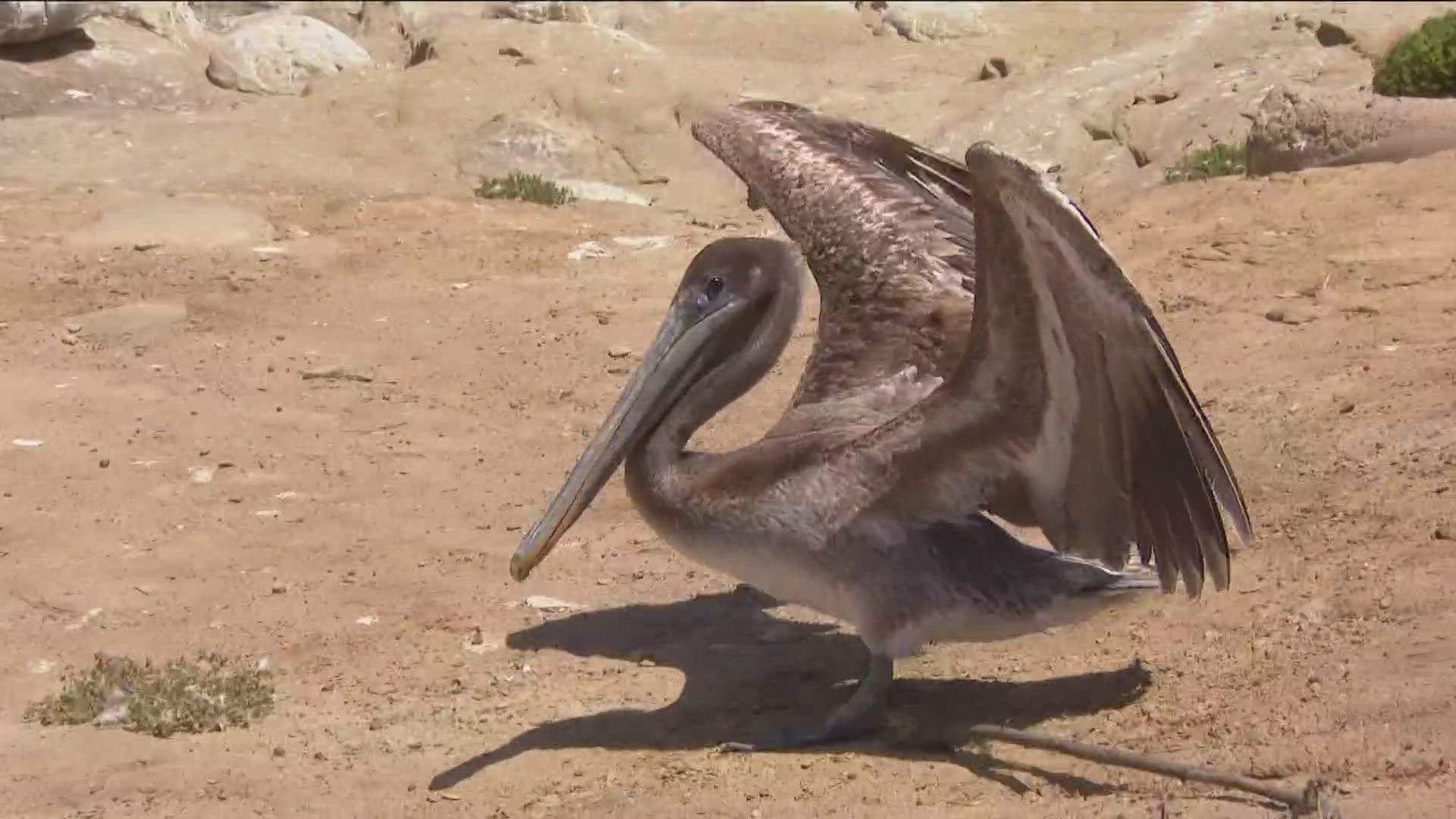SAN DIEGO — A sharp rise in the number of sick and injured pelicans across Southern California has bird and wildlife experts searching for answers. Here in San Diego, SeaWorld has seen an influx of pelican rescue calls over the past two weeks.
CBS 8 rode along with the SeaWorld San Diego rescue team Wednesday as they released a brown pelican at La Jolla Cove. They took in the bird last week when it was sick and emaciated and nursed it back to health.
“It is really amazing to return them and just watch them fly away,” said Jeni Smith, curator of the rescue program at SeaWorld San Diego.
SeaWorld has experienced a sharp increase of calls lately, rescuing 20 pelicans over the past two weeks.
“A lot of these pelicans are coming in emaciated, they’ve ingested fishing hooks, they may have injuries, and this may be because they are starving, they’re trying to find food and they’re getting into trouble as well,” said Smith.
The problem is widespread across Southern California and even as far north as Santa Cruz. On Monday, two dozen sick pelicans arrived at the Wetlands and Wildlife Care Center in Huntington Beach. Nearly 150 of these birds have been brought to their facility since the beginning of April, 89 of those in the past week alone.
“A lot of birds are coming into care that are emaciated, they’re dehydrated, they’re hypothermic, they’re anemic, they’re basically just in a really poor body condition,” said Dr. Elizabeth Wood, veterinarian at the facility.
SeaWorld San Diego gave CBS 8 a tour of their bird rescue facility Wednesday where they had 10 pelicans in their care.
“We have a couple pelicans that are also very cold, so they are getting heat lamp therapy throughout the day," said Smith. "We are also feeding them throughout the day. They have a full body exam. We do a lot of diagnostics just to find out what is going on with the animal.”
When CBS 8 rode along with the rescue team for a pelican's release, SeaWorld San Diego received another four calls reporting sick and injured pelicans.
“The calls that I’m getting are pelicans in odd places, so parking lots, people’s backyards, inland. That is not a common behavior for a pelican,” said Smith.
Many of the birds come in at about half their normal weight. CBS 8 talked with Tim Daly, public information officer at the California Department of Fish and Wildlife about a potential cause for the uptick. He told CBS 8 they're still investigating all the reports, but he said this situation looks a lot like a similar circumstance they saw in 2022.
“It’s entirely possible that this is related to recent weather conditions in which it was pretty stormy, and visibility was harmed, waters were too choppy. It might’ve just been too difficult for birds to be able to get as far down into the water as they needed to get fish and anchovies,“ said Daly. "These birds are starving. They’re not getting to the food they would normally be able to get to."
If you see a sick or injured pelican, you’re asked not to get too close, and to call SeaWorld Rescue at 1-800-541-SEAL. They're available 24/7 and 365 days a year.
Watch Related: Pelican sightings on the rise at La Jolla Cove (Apr 17, 2022)

